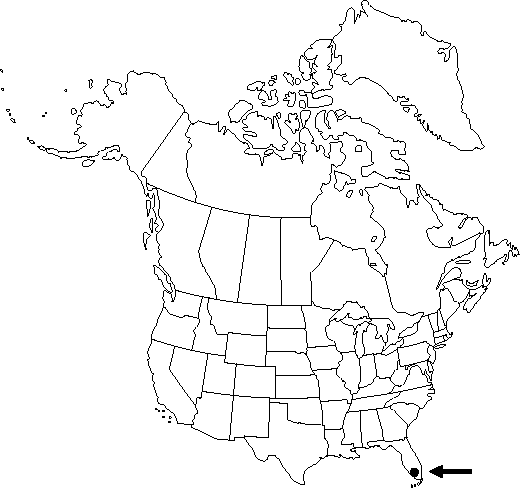Herbs, perennial, rhizomatous, erect or reclining, simple or sparsely branched, 1-3 dm, glabrous, without black, glandular dots. Leaves alternate; petiole 1/10-1/5 length of blade, slightly dilated and clasping at base, decurrent in lines or conspicuous internodal wings. Leaf-blade 3-5-veined from base, narrowly to broadly elliptic or elliptic-lanceolate or oblanceolate, 5-13 × 1.5-4 cm, base attentuate to acuminate, apex acute to short-acuminate; surfaces glabrous. Spikes terminal, 1-3, sometimes also with solitary spikes from proximal axils, densely flowered, 6-13 cm, mature fruiting spikes 2-3 mm diam. Fruits sessile, globose to very broadly ovoid, 0.5-0.8 × 0.6-0.8 mm, minutely warty; beak minute, mammiform or conic, 2 sides flattened, 0.1-0.2 mm.
Phenology: Flowering all year.
Habitat: Swamps
Elevation: 0-10 m
Distribution

Fla., West Indies, Central America, South America
Discussion
Peperomia alata is known from three collections (one not specified, the other two from Collier County, Florida). It is a common and widespread species of the West Indies, Central America, and South America. The characteristic wings on the stem are not so conspicuous as on many specimens from those regions.
Selected References
None.